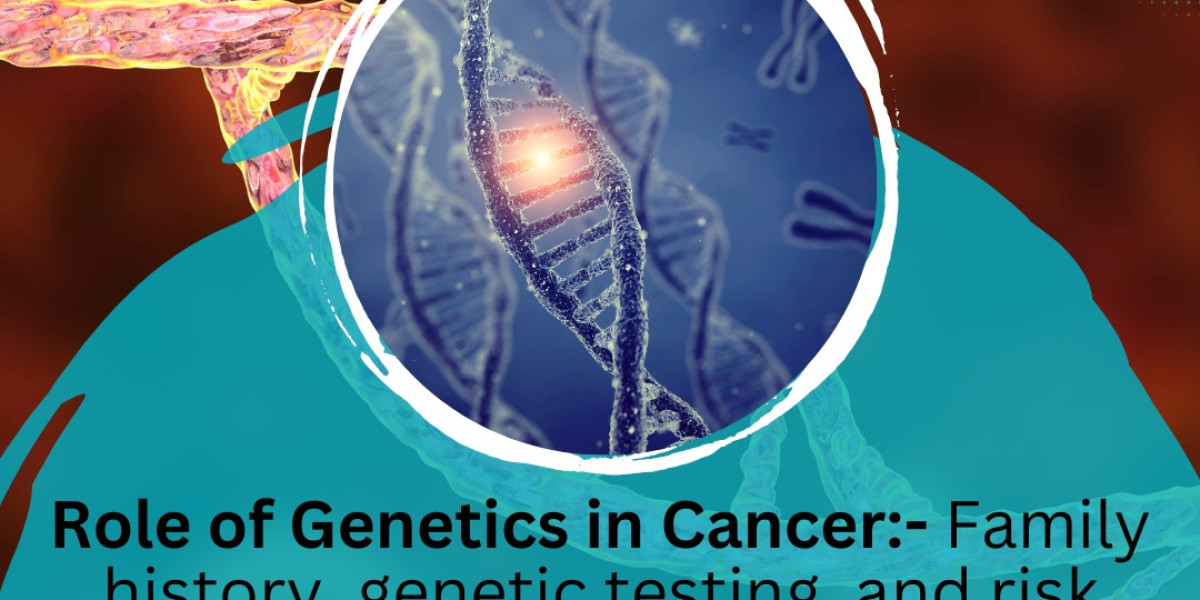Introduction
Cancer, a leading cause of death worldwide, is a complex disease caused by a variety of genetic factors. While cancer has traditionally been treated with broad approaches like chemotherapy and radiation, advances in genetic research are opening new doors for more personalized care. Understanding the genetic underpinnings of cancer can not only help detect it earlier but also lead to the development of targeted therapies that improve treatment outcomes. In regions like Abu Dhabi and the UAE, finding the best oncologist who integrates genetic insights into their practice is essential for patients seeking the latest advancements in cancer care.
1. What Is the Role of Genetics in Cancer?
Genetics plays a pivotal role in both the development and progression of cancer. The disease arises when there are mutations in the DNA that control cell growth and division. These mutations can be inherited (germline mutations) or occur throughout life due to environmental factors (somatic mutations). While inherited mutations like BRCA1/BRCA2 significantly increase the risk of certain cancers, somatic mutations are often responsible for cancer development in individuals with no family history.
Understanding which genes are involved in cancer can provide critical insights. For example, mutations in genes such as TP53, which is responsible for cell cycle regulation, or the HER2 gene, which is associated with breast cancer, can be used to predict cancer risk and tailor treatment plans. The expertise of an oncologist in the UAE, particularly those who are well-versed in genetics, is crucial for accurately identifying and managing these genetic factors.
2. How Genetic Insights Aid in Early Detection
Early detection of cancer significantly increases the chances of successful treatment and survival. Genetic testing is emerging as a powerful tool in identifying individuals who may be at high risk for specific types of cancer before symptoms appear. By assessing genetic predispositions, doctors can recommend regular screenings or preventive measures, such as more frequent mammograms for women with BRCA mutations or colonoscopies for those with Lynch syndrome.
For example, genetic tests for mutations in the BRCA genes can help detect breast and ovarian cancers early, especially for individuals with a family history of these conditions. In Abu Dhabi and across the UAE, many top oncologists are now incorporating genetic screening into their practices to offer patients personalized advice and guidance on monitoring their health.
3. Targeted Therapies: Transforming Cancer Treatment
Targeted therapies are revolutionizing cancer treatment, offering more effective and less toxic alternatives to traditional methods. These therapies are designed to specifically target genetic mutations that drive cancer growth, offering precision medicine tailored to each patient's unique genetic profile. For instance, drugs that target the HER2 gene, commonly overexpressed in certain types of breast cancer, can dramatically improve outcomes for patients.
Other groundbreaking targeted therapies include PARP inhibitors, which are particularly effective for cancers linked to BRCA mutations. By working with a skilled oncologist in the UAE, patients can benefit from these advanced treatments. In cities like Abu Dhabi, where access to cutting-edge medical technology is abundant, patients have the opportunity to receive world-class cancer care that incorporates genetic profiling and personalized treatment plans.
4. Advances in Genetic Research and Technology
Genetic research in cancer care has come a long way, with groundbreaking technologies such as CRISPR and next-generation sequencing (NGS) leading the charge. CRISPR, a gene-editing tool, is being explored for its potential to repair genetic mutations that cause cancer, while NGS allows for detailed analysis of a patient’s cancer genes, providing insights into the most effective treatment options.
In addition, major cancer databases like The Cancer Genome Atlas (TCGA) are helping researchers better understand the genetic landscape of cancer, enabling them to identify new drug targets and biomarkers. In the UAE, access to these advanced technologies is transforming the landscape of cancer treatment, giving patients access to some of the most cutting-edge care available globally.
5. Challenges and Ethical Considerations
Despite the immense promise of genetic testing and targeted therapies, there are still challenges to overcome. The technology is not without limitations—while it can provide vital information about cancer risk, not all cancers have clear genetic markers that are actionable. Additionally, genetic testing can sometimes lead to overdiagnosis or a false sense of security.
Ethical concerns also arise with genetic testing, such as privacy issues, the potential for genetic discrimination, and the psychological impact of knowing one’s genetic predisposition. Furthermore, while targeted therapies offer hope, they can be expensive and may not be accessible to everyone. Oncologists in the UAE, particularly in major medical hubs like Abu Dhabi, are working to ensure these advancements are accessible while also navigating the ethical complexities involved.
Conclusion
Understanding cancer through the lens of genetics is changing the way we detect, treat, and prevent the disease. From earlier detection through genetic screening to more personalized, effective treatments through targeted therapies, genetics is at the forefront of modern oncology. As research continues to evolve, the promise of genetic-based treatments is becoming more of a reality, offering hope for better outcomes.
For patients in Abu Dhabi and the UAE, seeking the expertise of the best oncologists who are skilled in genetic testing and targeted treatments can significantly impact their cancer journey. With the right oncologist and the latest genetic insights, individuals have a powerful tool for both preventing and fighting cancer with greater precision and confidence.








